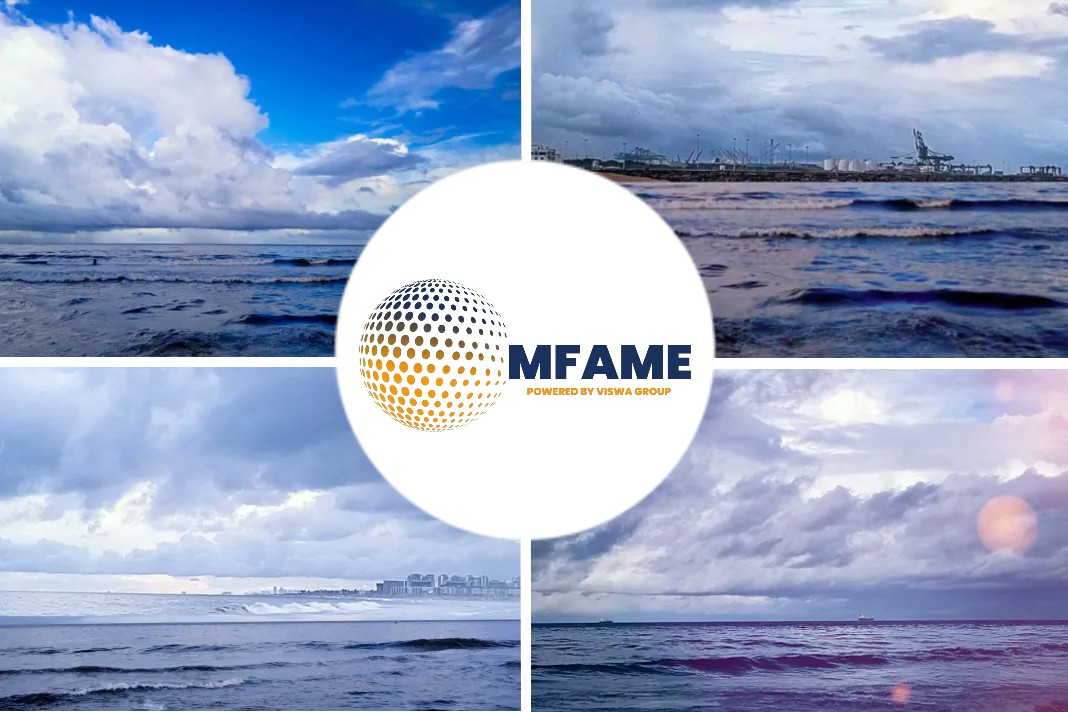A trial of a new concept aimed at following the origins of a bunker fuel using blockchain and DNA-marked fuels has been completed successfully, reports Ship Insight.
The trial was conducted as a joint venture by BunkerTrace, Cooperative Bebeka, Boskalis and Minerva.
BunkerTrace trial
The first pilot of BunkerTrace, the system that combines synthetic DNA tracers and blockchain to manage risk for marine fuels by creating a transparent chain of custody, was successfully completed on 3rd October.
The Boskalis-owned dredger, Prins der Nederlanden was bunkered with 900m3 of ISO 8217:2010 compliant fuel supplied by Minerva with a unique tracer added.
The crew then successfully detected this mark with an on-board analysis case that took less than a minute, with the result of the test logged in a blockchain-based transaction record.
Addition of tracer to fuel
The trial used a tracer – added to the fuel as it was loaded onto a Minerva bunker barge, via a dosing pump on the fuel line. Bureau Veritas verified that the fuel line and receiving cargo tanks were empty.
As the fuel was bunkered, the crew of the Prins der Nederlanden used an on-board sampling kit to test for the presence of the tracer.
The test took under two minutes and was able to detect the presence of the mark at two parts per billion in the fuel. Samples of fuel were collected before and after the tracer was added for further analysis.
Outcomes of the trial
- This trial demonstrated the readiness of the BunkerTrace system to transform IMO 2020 bunker fuel compliance and increase transparency and traceability in the marine fuels supply chain.
- By adding markers to fuel at every stage of the supply chain and recording each transaction in a blockchain-based system, BunkerTrace creates an immutable audit trail that follows the fuel, and any changes made to it, recording all activities and sign offs by actors transacting the fuel.
- By the time it reaches a vessel, crew can in seconds test for the presence of the necessary BunkerTrace markers and, if they are absent, make a decision about whether to proceed.
- Where the DNA provides data related to the provenance and movement of the actual fuel, the blockchain solution traces interactions that occur on a human to human level – the digital ‘handshakes’ that occur along the supply chain.
- This, it is claimed, creates a powerful tool for owners, suppliers, ports and insurers to track fuels and manage the risk of non-compliant, or even potentially dangerous contaminated marine fuels, from being used on international ships.
- It also allows crew to test fuel before it is bunkered, rather than relying solely on lab-based testing. It also provides the basis for determining which fuel supply chains are the most reliable.
Stress on fuel quality
Marc Johnson, CEO BunkerTrace, commented following the trial, “After last year’s ‘epidemic’ of bad bunker fuel, it’s unsurprising that owners, insurers and operators are worried about the quality of fuel available as shipping scrambles for available product post-2020 that will see more fragmentation in fuel supplies as more fuel is blended to meet compliance.”
He assured that the successful trial of BunkerTrace has demonstrated that it’s an easy, reliable means of introducing a level of transparency and traceability into the marine fuel supply chain.
He further said, “We’ve had a high level of interest in the product so far, and this is an important step on the way to rolling this out to the market.”
Energy procurement – Highest priority
Harry Vasse, General Director at Cooperative Bebeka, added, “Managing the energy procurement now and in the future has our highest priority. Energy procurement is about sustainability, transparency and environment. CSR reporting takes place at boardroom level since company reputation is at stake.”
“With the product portfolio in the marine energy market becoming increasingly complex and diverse in the near future our focus is on expertise and continuously developing of member protection tools and this is why we fully support the BunkerTrace initiative,” he commented.
Identification of reliable supply chains
Combining these two revolutionary technologies will provide the Cooperative and its members with an independent and transparent method for managing fuel quality throughout the bunker chain.
Furthermore, it will support us in identifying the most reliable and trustworthy supply chains and streamline compliance.
Pablo Sansó Gil, Head of Sales (EMEA) at Minerva, said, “These are unprecedented times for the bunkering market. As suppliers, it’s vital that we can increase our levels of transparency and build trust with our customers.”
“It’s great to see an example of a technology that is going to make it much easier to do this in action,” he concluded.
Did you subscribe to our daily newsletter?
It’s Free! Click here to Subscribe!
Source: Ship Insight



















